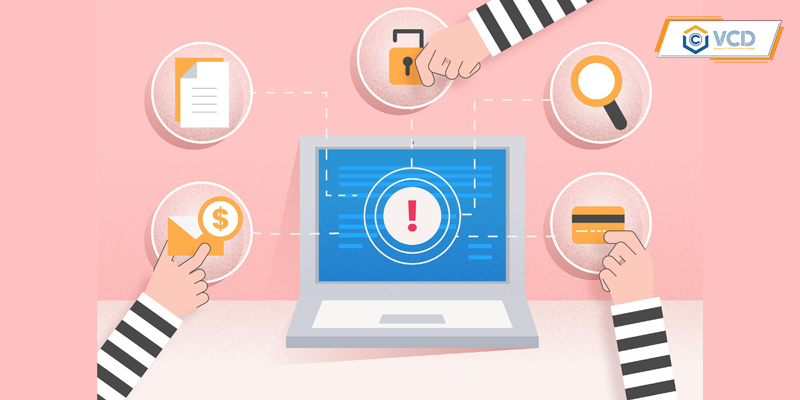Basis for determining copyright infringement
In the context of an increasingly developing knowledge economy, copyright has become one of the important issues in the field of intellectual property. Copyright infringement not only affects the interests of authors and creative organizations, but also causes negative consequences for the whole society. To protect the legitimate rights of authors, it is extremely necessary to clearly identify the bases and criteria for identifying infringement. The following article from VCD will help you.
1. What is copyright infringement?
Copyright includes personal rights and property rights of authors and copyright owners as prescribed in Articles 19 and 20 of the current Law on Intellectual Property.
Copyright infringement is usually an act in the form of an action that affects the integrity of the work, infringes on the personal values, prestige, and reputation of the author, or illegally exploits and uses the work.
The nature of copyright infringement is illegal exploitation, that is, using the exclusive rights of the author or copyright owner without permission and without respecting the rights of that owner. These copyright infringements are actually very diverse and the infringing subjects are also different.

2. Basis for determining copyright infringement
According to Article 64 of Decree 17/2023/ND-CP detailing a number of articles and measures for implementing the Law on Intellectual Property on copyright and related rights, the basis for determining copyright infringement is based on the following grounds:
First, the subject under consideration falls within the scope of subjects currently protected by copyright as prescribed in Article 14 of the current Law on Intellectual Property. These subjects must satisfy the conditions on the basis for establishing rights as specifically prescribed in Clause 1, Article 6 of the Law on Intellectual Property.
Second, there is an infringing element in the subject under consideration. Common infringing elements in copyright infringement are the modification or cutting of a work that affects its originality, illegal copying of a work, or use of a work without permission or payment to the author or copyright owner.
Third, the person performing the considered act is not the subject of copyright or related rights. In case there are many co-authors or co-owners of copyright, the act of infringement may occur between the co-authors or co-owners when one of them performs the act without the consent of the other parties. The acts of infringement will be considered as violations if the person performing the act is not permitted by law or competent authority, according to the provisions of Clause 3, Article 20, Clause 5, Article 29, Clause 3, Article 30, Clause 3, Article 31 and Articles 25, 25a, 26, 32 and 33 of the Law on Intellectual Property. Fourth, the act under consideration occurred in Vietnam. Violations occurring within the territory of Vietnam will be subject to the provisions of Vietnamese law. If the infringement occurs via telecommunications networks or the Internet, it is also considered to have occurred in Vietnam when: the consumer or user of digital information content is a person in Vietnam and the infringing content is accessed or exploited from Vietnam.
3. Some measures to overcome copyright infringement
Registering copyright for a work: is an important step, helping the author obtain legal evidence of ownership. This not only protects the author’s rights but also creates more favorable conditions for resolving disputes if they occur. Thanks to that, the author can effectively prevent acts of infringement of his rights.
Raising people’s awareness of respecting copyright and the right holders’ awareness of self-protection: awareness of respecting copyright is one of the most important conditions affecting the enforcement and protection of copyright in a country. If people have a good awareness of protecting copyright, infringement can be prevented and stopped. In addition, the state needs to strengthen education on copyright and related rights in schools and other educational institutions.
Enhance the role of collective copyright representative organizations: Collective copyright representative organizations act as intermediaries between authors, copyright owners and organizations and individuals who need to exploit and use works, especially in the issue of copyright fees. Therefore, promoting the role of collective representative organizations, in addition to helping authors, also contributes to stabilizing and limiting current copyright infringements, supporting state management activities.
Apply some technological measures: technological measures can be applied such as using copyright protection software (DRM, watermarking), applying blockchain to authenticate ownership, deploying online monitoring systems and applying artificial intelligence to detect violations. In addition, developing a platform for sharing legal content, building a system for reporting violations, and organizing online courses on copyright are also effective solutions.
Above is the article “Basis for determining copyright infringement” that VCD sends to you. We hope this article is useful to you.
Sincerely,
